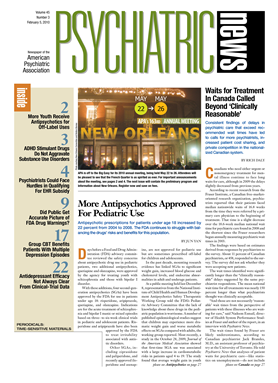Leptin—an appetite-suppressing hormone discovered 16 years ago—may play a role in two public-health scourges of the 21st century—obesity and Alzheimer's disease.
Although leptin's major mission seems to be signaling long-term caloric intake and fat stores to the hypothalamus, thereby modifying food consumption and energy expenditure, it also seems to mediate structural and functional changes in the hippocampus and to improve memory function, and a deteriorating memory is, of course, a characteristic symptom of Alzheimer's disease.
Leptin likewise appears capable of reducing brain concentrations of amyloid, a biological marker of Alzheimer's.
Higher levels of leptin in blood have been linked with a lower risk of Alzheimer's disease, a study in the December 16, 2009, Journal of the American Medical Association (JAMA) has found. The senior investigator was Sudha Seshadri, M.D., an associate professor of neurology at Boston University.
Some 800 seniors (average age 79) had their blood levels of leptin measured and were followed on average for eight years. A total of 111 of them developed all-cause dementia over that period (that is, fulfilled DSM-IV criteria for dementia). And out of the 111, 89 developed Alzheimer's in particular over that period (meeting criteria developed by the National Institute of Neurological Diseases and Stroke and the Alzheimer's Disease and Related Disorders Association).
Seshadri and her group compared the levels of leptin that had been present in subjects who developed dementia in general or Alzheimer's in particular with the levels that had been present in subjects who did not. Even after some potentially confounding factors such as age, gender, high blood pressure, diabetes, smoking, body mass index, and the APOE e4 gene variant were controlled for, leptin levels were significantly and inversely associated with the risk of dementia in general and of Alzheimer's in particular.
So leptin might help protect people from developing Alzheimer's or other dementias, Seshadri and her team speculated, and if that is the case, they wrote, it might also explain the link that has been made between midlife obesity and subsequent Alzheimer's (Psychiatric News, May 15, 2009). In other words, “the observed association of midlife ... obesity with subsequent risk of Alzheimer's may be an acquired resistance to effects of leptin, including its neuroprotective effects.”
Still other recent research suggests that leptin might have some therapeutic value. Leptin administration was found to boost memory in animals genetically engineered to have Alzheimer's, Nikolaos Tezapsidis, Ph.D., president and CEO of Neurotez Inc. in Bridgewater, N.J., and colleagues reported in the April 2009 Journal of Alzheimer's Disease. They now plan to “take a leptin product into clinical trials as a novel hormone-replacement therapy for Alzheimer's,” Tezapsidis reported in a press release.
The study was funded by the National Institutes of Health. Neurotez had no involvement in it.
